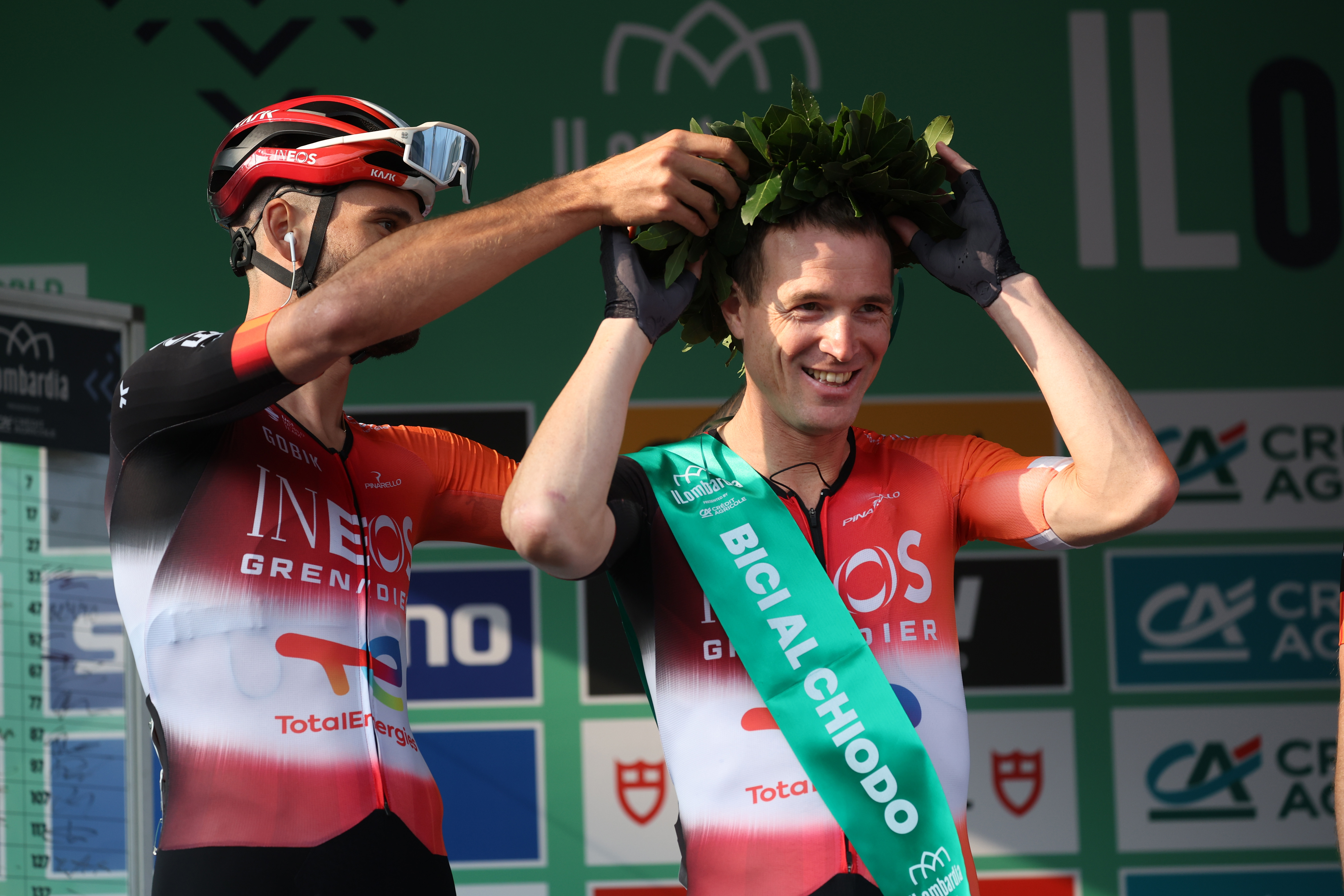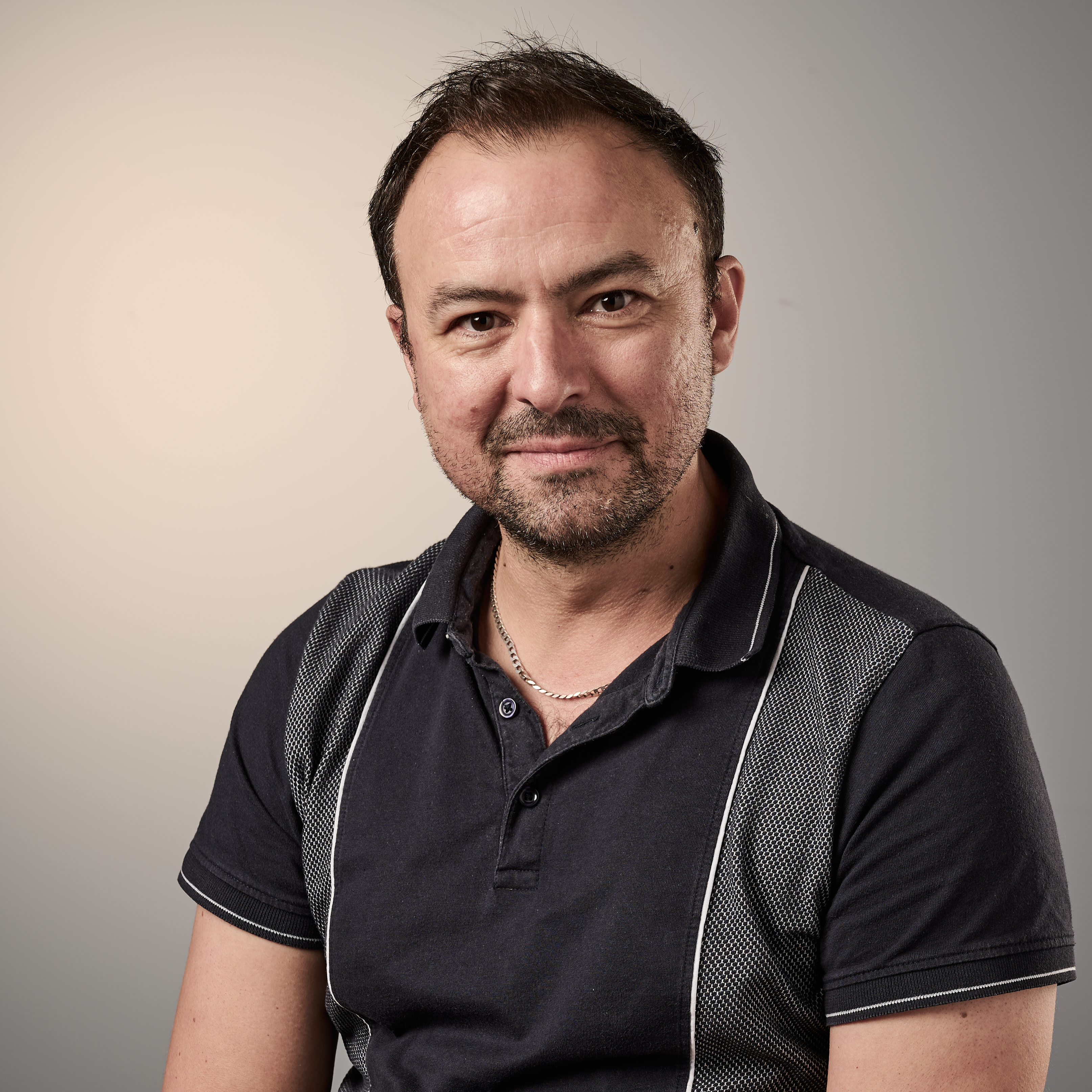'Incredibly dangerous and exhausting': retiring Ineos Grenadiers rider reflects on how bike racing has changed
Italy's Salvatore Puccio also details harsh modern training regimes and says the crashes on TV are just 'one per cent' of what goes on


While training and nutrition may have improved exponentially throughout the 21 century, it hasn't made the business of racing any easier, retiring Ineos Grenadiers rider Salvatore Puccio has said. In fact, he said, it's only getting harder – and more dangerous.
In an interview with Tutto Bicci, the 36-year-old talked about both the improvements and the hardships of a sport that he called "Incredibly dangerous and exhausting".
And as for the idea of limiting gear ratios, Puccio deemed that a red herring: "It's not a problem with the gears, but with the mindset," he said. "There are only a few of us left braking, and if you slow down, you lose 40 positions in a flash, which is tough to recover. If you leave any space, they'll come at you from all sides.
He added: "The accidents we see on TV are one per cent of what happens; in a group, it's a constant shoving and feeling the pressure of those around you.
"The group is really very compact; once you only experienced this frenzy at the finish line, now it's with us from kilometre zero. Recently, on a descent, I reached 84kph, and I was scared. I fear it will only get worse."
Puccio, who has spent his entire career at the Ineos Grenadiers set-up, having joined back in 2011 when it was Team Sky, also detailed some of the changes in training and nutrition that he'd seen over the years.
"Cycling has changed a lot and is increasingly demanding," he said. "To stay competitive, last winter I did three training sessions a day. I went to the gym in the morning, on my bike, and then on the rollers, dressed up to sweat. How long can a young person handle this pace?
The latest race content, interviews, features, reviews and expert buying guides, direct to your inbox!
"There's been a revolution in nutrition," he added. "Once upon a time, after an omelette, you'd do a regular five-hour fast. Now you start training with specific, personalized sessions, with pockets full of gels. You have to get used to absorbing 120 grams an hour – a lot.
"I've never had any problems with my weight, I know myself, I know how to manage it, but for many, dieting is an added stress."
Puccio spent a career as a dedicated helper to the team's better known riders, and while he has never ridden the Tour de France, he rode 10 Giri d'Italia – including supporting Chris Froome to victory in 2018 – and seven Vueltas a España.
Having hung up his racing wheels he plans to stay involved in the sport and, taking inspiration from fellow countrymen and Ineos team managers past and present Dario Cioni and Matteo Tosatto, has enrolled on the UCI's sports director course.
After cutting his teeth on local and national newspapers, James began at Cycling Weekly as a sub-editor in 2000 when the current office was literally all fields.
Eventually becoming chief sub-editor, in 2016 he switched to the job of full-time writer, and covers news, racing and features.
He has worked at a variety of races, from the Classics to the Giro d'Italia – and this year will be his seventh Tour de France.
A lifelong cyclist and cycling fan, James's racing days (and most of his fitness) are now behind him. But he still rides regularly, both on the road and on the gravelly stuff.
You must confirm your public display name before commenting
Please logout and then login again, you will then be prompted to enter your display name.
